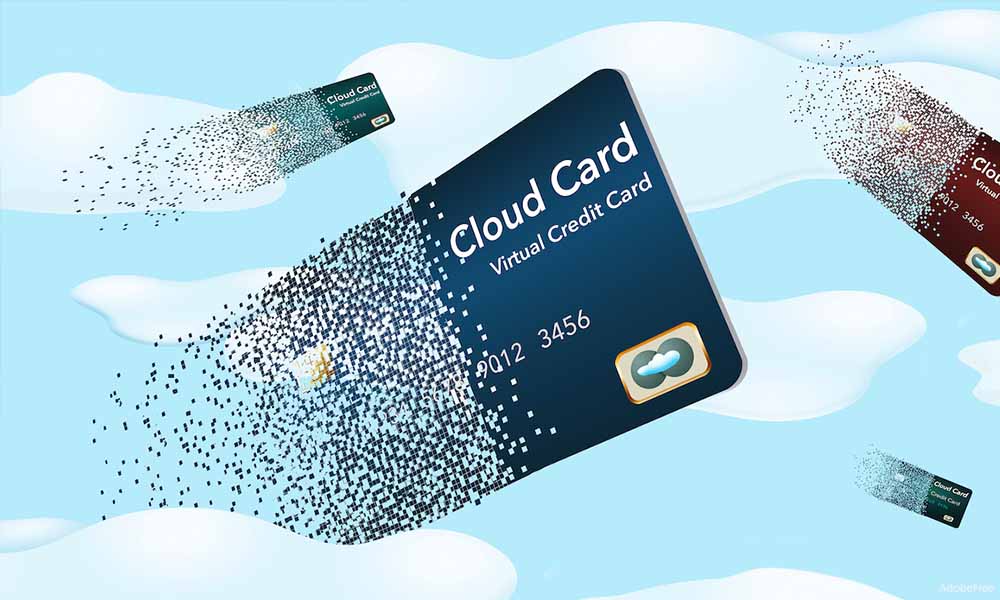Accounting & Finance
Five Benefits of Virtual Business Credit Cards

Virtual cards for businesses have become a sensation as they incorporate technology and versatility to make digital payments less stressful and more reachable.
Fortunately, for businesses, virtual cards have arrived just in time. Typical physical payment vehicles such as charge, debit, and credit cards are cybercriminals’ core targets; therefore, these cards have had their day. There is a new generation of online payment solutions that are more secure.
Virtual credit cards’ main strength is their ability to mask credit card data through a randomly created credit card number.
Looking for more upsides of virtual cards for businesses? You’ve come to the right place. In this business blog, we consider the top five reasons this payment solution is now the go-to for businesses keen to protect sensitive customer data, including:
- Spend control
- Fraud protection
- Vendor payments control
- Tracking
- B2B digitalization
Improved Spend Control
One of the most recognized benefits of virtual cards for companies is that they allow for better expense management. Business leaders must know how much is spent and how often their card is passed through that little device meant to process payments.
However, bank-issued physical cards are not exactly the best solution in this sense, as these aren’t designed to share critical information like each receipt uploaded and expenses charged with the finance team.
Categorize Expenses
Not to mention that physical cards can’t categorize expenses, so you might be inclined to spend more if you don’t have a clear idea of money moving in and out of your organization.
With virtual cards, things are different, as these enable you to control precisely where payments are made and thus mitigate the risk of misuse from contractors and workers.
Enhanced Fraud Protection
An instant virtual credit card is the perfect tool to minimize fraud and boost digital security. With credit card fraud constantly threatening organisations, it’s vital to adopt proficient measures. Virtual cards are a good start in this regard.
Tokenization
Due to the new-gen method called tokenization, they can hide sensitive information from the curious eyes of scammers and hackers, making them less vulnerable to fraud. Plus, safety is at your very fingers since you can cancel, freeze, or delete a card as soon as you notice a potential data breach.
Control Over Vendor Payments
Virtual credit cards are the answer to more manageable vendor relationships. It’s common for businesses to share their card number with vendors or suppliers via email or over the phone, but this at-first-innocent activity can transform into an all-time hack if you don’t take the right action in this sense.
Consider paying vendors instantly and avoid getting your payments stuck in an administrative workflow.
Distinct card number
Using virtual cards in your relationships with merchants is a convenient solution to fraud prevention. Why? You can generate a distinct card number to work with only one vendor. If a vendor compromises your account, the only card number affected would be linked to that particular vendor.
Better Tracking
The finance team understands better than anyone else the burden of finding every payment and receipt intention out there.
Tracking and finding the reason the accounting team has made a particular payment and where this invoice or receipt is located can be downright daunting, all the more so when an established company with hundreds of relationships is at stake.
Anyway, start-ups can also deal with such problems, so if you’re running such a company, we recommend using virtual business startup credit cards to keep close tabs on your finances.
Acceleration of B2B Digitization
Financial activity on the Internet is becoming more secure, and security is crucial for businesses – but so is digitization. Going paperless can push your company forward, streamlining business operations and strengthening B2B relationships. Virtual credit cards, for example, make payments a win-win for each party involved, as time and cost savings are at stake.
In Summary
A virtual credit card is a digital version of a physical credit card that can be used for online purchases. It typically includes a unique credit card number, expiration date, and security code that are generated by a service provider or bank. The main advantage of using a virtual credit card is added security.
Since the virtual card number is different from the physical card number, even if a hacker intercepts it during a transaction, they would not be able to use it to make unauthorized purchases.
Furthermore, virtual credit card numbers can be easily canceled or replaced if they are compromised. These benefits make this payment solution a secure option for business transactions.
Let virtual cards become the one thing that aligns both spending and corporate goals.






